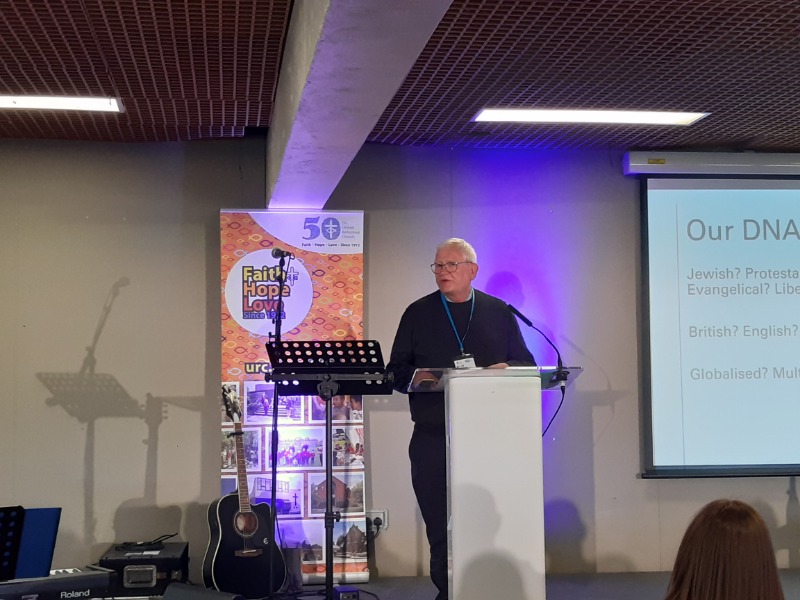The Revd David Cornick, former Principal of Westminster College Cambridge, and former General Secretary of both the United Reformed Church (URC) and Churches Together in England, led a workshop at the Ministers’ Gathering which explored the history of URC.
Explaining that the URC has a complicated DNA, David took ministers through the URC’s 2,000-year-old Jewish roots, through its 500-year-old Protestant, Reformed, dissenting, ‘restorationist’, evangelical, liberal roots; to our ecumenical roots that have developed over the past 100 years; and through our increasingly globalised and multicultural roots that have developed over the past 50 years.
Talking about the origins of the Congregational and the Presbyterian traditions, David traced their development over the centuries to where we are today.
Ministers broke out into small workshops and discussed the following questions:
- What do I most cherish about my inheritance in the URC?
- What frustrates me most about my inheritance in the URC?
- What parts of that inheritance can inspire us in today’s mission?
- What should we throw on the bonfire?
In part two of the workshop, David explored what historians and sociologists of religion think has been happening over the last half century. He guided the gathering through the birth of ecumenism in the early 20th century, its challenges, through to ecumenism in mid to late 20th century; the experience of secularisation, and the decline in church membership, a dominant contour of the western European Christian landscape.
Although we cannot ignore the fading social influence of religion in a society, the fact that pews are thinning out and congregations are growing older, David explained that church history growth and decline have co-existed.
“There have always been individual congregations which have bucked the trend,” he said pointing to the “growth of Pentecostalism and the New Churches, to Anglican ‘Fresh Expressions’ and to the experience of church growth in London as evidence of either ‘de-secularization’ or ‘re-sacralisation’”.
In the past 50 years, 43 of which David has been ordained, it is his reflection that the Church is facing a profoundly difficult mission context.
“But” he said, “it is worth remembering that as Western Europe has become increasingly secularised, the centre of Christian gravity has moved decisively to the southern hemisphere. It is a nice irony that migration has made that southern vibrancy part of British Christian experience, and indeed of the United Reformed Church. That is a small lesson in perspective.”
“What does Jesus say to us, the church in Western Europe, in Britain, this odd, bizarre mission field?” David continued.
“Be set free, live the jubilee in which good news is for the poor, prisoners are set free, the blind see and the oppressed leap with life and laughter. And if they pass by, well, let them.
“Remember, they tried to throw me off a cliff.”
- Read the text of David’s detailed history of the URC and its roots here: part one, Who is the URC? and part two, Handling an Inheritance.
- Watch the talks here: youtube.com/URCUK
David Cornick and Robert Pope have edited a book about the URC’s first 50 years which will be launched at General Assembly in July.

